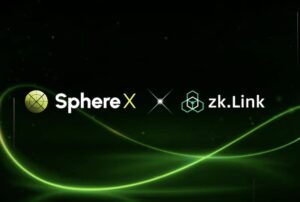Martin Köppelmann, the creator of decentralized marketplace Gnosis, has said that the adoption of Ethereum should be measured by the network effect of decentralized applications (dApps), not the number of users on the blockchain network. As a decentralized computing platform, the Ethereum blockchain network enables dApps and users to process data in a peer-to-peer and distributed manner. Users on Ethereum are not required to trust any intermediary on the network to initiate transactions or carry out operations with dApps.
Köppelmann, who created a major decentralized marketplace that has been competing against Augur, said that the adoption of Ethereum should be measured by the network effect of dApps and the ability of dApps to use the smart contracts of other applications on Ethereum to process information.
“The best metric of success for Ethereum is not how many DAPPs are deployed or how many transactions those DAPPs have. It is about how many DAPPs are created and used that use smart contracts from other dApps,” he explained.
As an example, decentralized exchange protocol 0x is a base layer which supports decentralized exchanges and relayers launched on the blockchain. The Ethereum-based 0x protocol is leveraged by a wide range of digital asset trading platforms such as Radar Relay, Paradex, Melonport, Maker, imToken, Aragon, and Augur, all of which use the 0x protocol to allow users to trade digital assets in a decentralized manner.
Coinbase co-founder and former Goldman Sachs trader Fred Ehrsam stated that protocols that enable dApps to share smart contracts and leverage the functionalities of other platforms on Ethereum allow for the creation of an ecosystem wherein users can benefit from the compatibility of dApps across a wide network.
For instance, because 0x protocol enables decentralized exchanges to operate on its base layer, potentially, exchanges can share a pool of liquidity that allows users across various decentralized exchanges to trade digital assets in a shared environment.
Köppelmann said:
“Few examples from Gnosis context: DutchX uses the MakerDAO price oracle; the 0x token registry and will be itself controlled by a Daostack DAO. Melonport uses Oasisdex… but many more are coming.”
If base layers like 0x and dApps such as OasisDEX and MakerDAO that offer specific functionalities that are beneficial to dApps in other categories continue to see an improvement on their network effect, a decentralized network of dApps will form, allowing many applications and platforms on Ethereum to benefit from each other’s unique and innovative solutions.
In essence, Köppelmann stated that the increase in the network effect and interconnectedness of dApps will be the main contributor to the mainstream adoption and long-term growth of Ethereum.
How About Users?
The number of users of dApps is an important metric but is a number that will naturally increase as the network effect of dApps, scalability of Ethereum, and user interface of dApps continue to demonstrate exponential growth and improvement.
If utilizing dApps to create bets on platforms like Gnosis and Augur, and using computing power of decentralized cloud networks like Storj become as easy as using centralized alternatives, then the active number of users on Ethereum will inevitably increase.







